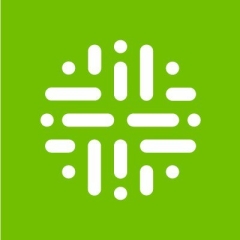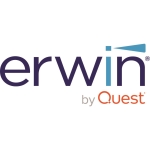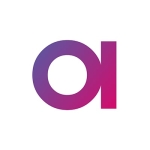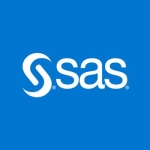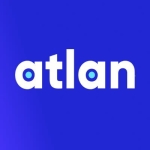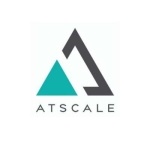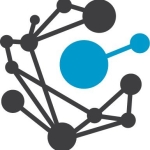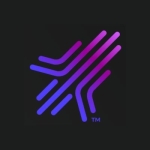What is our primary use case?
I've been working with multiple companies, but with two of the companies we have been using Collibra mostly for data governance. With these companies, our use case is all about metadata governance, lineage, and data-related policy management. We're doing policy management directly inside Collibra and we're also using it for issue management on the analytics side.
If someone has a data concern, they just call me in and then put that concern into Collibra as a front-end UI for the data stewards and data scientists, and we start processing them.
How has it helped my organization?
We have benefited greatly from Collibra's data governance reporting. If we want to know more about a specific data element, we can use Collibra to get a picture of the whole history of it.
For example, who is the business owner for it? Where is the data coming from (especially when you have different sources which come through) and who was all touching it? And if I wanted to add a rule, like a business rule or a data quality rule for that particular data element, how or where do I keep it? It's like one central place, but for all these items.
What is most valuable?
I like the lineage feature the most because I don't think there's any other tool that actually depicts the data flow from multiple sources and the connectivities between every data element inside those sources.
I don't think there's any other solution where you can view multiple systems and multiple sources and data places and you can just write it down. It's a lot of work to initially organize but there's no other tools to do lineage like Collibra does it.
What needs improvement?
The connectors are not very sophisticated. They can do, for example, Informatica and Tableau, but the connectors themselves could be improved.
I recently got a subscription for another 600K for Collibra for one more year, so the author licenses are not used much. And they keep changing the UI platform; that can also be improved.
From an administration perspective, I like the white-glove onboarding part of Collibra. That was actually nice and I really liked that. For administration in general, I like that you can use Collibra however you want. It's more raw and easily adaptable.
So you can cook it or you can steam it or you can make changes to it in a lot of different ways, but it would also be nice if there were an already available analytics tools like Tableau at hand. Though it is easily adaptable and you'll have a completed end product which you can really leverage.
For how long have I used the solution?
I've been using Collibra Governance for five or six years.
What do I think about the scalability of the solution?
In terms of scalability, it's more like adopting; it's more like a shark. You have to keep feeding it and then it will grow. It depends on how many systems you're using. I worked for a union bank earlier when we set up Collibra and we were able to push in 3000, 30,000, 30,000 data elements. It's great when all the data is available because the team had been doing data analysis for more than a year prior to getting onto Collibra.
At my current company, the data analysis started at the same time along with the data governance and I think I hardly have 300 data elements. So it works on however much you feed it.
And if you have a huge data dictionary and business glossary already available, well and good. Instead of putting it in an Excel sheet, you can put it on Collibra and then you can actually walk through it. But if not, then you have to start feeding it, and it might take at least two years until you get proper food for the tool.
How are customer service and technical support?
The technical support is okay, definitely not bad. I think they have a 24 hour SLA, but again, it's a data governance tool, so if it breaks and it's not available for a day or so, it's not going to create any business loss. It's more of an understanding kind of tool, and if the SLA is a bit delayed it won't be much of a problem.
The only comment I have is that some of the technical support teams in privacy, security, infrastructure, etc., could be more available during US timezones. That would have made our onboarding process easier.
How was the initial setup?
We went through setup with the white-glove onboarding program. I actually gave feedback to Collibra as well, because the process is a little unusual, but I appreciate it.
The one thing I found a bit difficult when properly onboarding with Collibra and setting it up is that some of the Collibra teams we're working with, like in the security, privacy, and infrastructure teams, are in the European timezone and not the US timezone. Because of this, it becomes a little uncomfortable. It would be great if they could change things around so that there's also somebody available in the US.
It's not just one single technical support team when you are setting up Collibra; you have a lot of different puzzle pieces to work with. That's what the white-glove onboarding is all about. So it actually takes five to six weeks to completely set up, from starting with the solution to getting the software installed and all the nodes set up.
Whether it's on-premises or online, in both cases the whole setup takes five to six weeks and in this time frame I also need to have the company-related IT support people available. And it's just hard for me because most of Collibra's support teams are on Europe time. It could even take up to eight weeks.
What about the implementation team?
Regarding implementation, we need to have the role-setting, we need to have the workspace in the UI in the front end, we need to build the communities, the groups, etc. So it's more like a whole structure that you have to build, and it's a lot of work.
It's more raw, so you can change it however you want. But the thing is, there's not much of a guideline and it depends on your company and organization as well. So you have to ask, how do you want to do the structure? Then you first have to find the communities, and you'll have to set up the groups and the UI, and what comes back, and it's just more about adopting the software to your needs.
Our data officer was very interested in doing it. So she's fully on. And we had an administrator, a developer and the business. We had around three or four business owners to set up the first part before we adopted the rest of the businesses. Of course I was there, too, and there was one more project manager. All in all, we implemented Collibra with only about eight people. As for ongoing maintenance, we only require one administrator.
What was our ROI?
We have not seen ROI yet. Again, it's more like a dictionary. You buy a dictionary at home, so whenever you want it, you use it. What is the value of getting the dictionary? I don't know. It depends on your talent. If your team does not have good talent, then the dictionaries are more useful. It gets easier to navigate. And if you don't have the dictionary, it's going to be hard.
What's my experience with pricing, setup cost, and licensing?
I think they have a trust issue. I did not like the way they recently went through the process. They were like, "Finish this SOW first, only then will we sign the other SOW." Or, "Finish this code." I didn't like that much.
And they're also very hard. They don't negotiate much: The first price is the first price. We tried our vendor management team contracts that our negotiation people use, but they did not negotiate at all, nothing at all. The very first price they quoted, they almost always stuck to the same price, within 95-98%. Always the same price; hardly anything went down. So that's one thing. They shouldn't do that.
Generally, when all the vendors quote, first they quote and then we start negotiating it. They might then reduce the quote or just provide a different way of getting around. Collibra were very rigid cost-wise, so they should improve that or maybe come up with some plan on how to negotiate.
Which other solutions did I evaluate?
I think we considered Informatica and one or two others that I can't remember off the top of my head. Informatica was the actual challenger to Collibra before we finalized the cost and everything.
It was cheaper, and it was another good one from an analytics perspective. But we know that, industry-wise, Collibra is number one from a data governance perspective. That's one of the reasons why we went with Collibra, even though the rest of the tools' setup cost and maintenance were cheaper.
What other advice do I have?
It's a very niche product. It's nice to use and easy to promote. You don't have to have all the user licenses - you can also get the author licenses. If you have 10 author licenses, you can get up to 50,000 consumer licenses. It's nice to know you have a mobile component in that regard.
If you're doing a lot of training as well, you need to do proper training with your data team, and with your business team, try to use it as a business tool instead of a technical tool. Employ it as much as you feed it, because then it's that much more useful.
And then having the business rules, the data governance and data quality rules, everything in one place, is nice to have. If you try to utilize it, the data lineage is number one, because there's awesome capability in it. So just try to use it and you'll start loving it.
I would rate Collibra a seven out of ten.
Which deployment model are you using for this solution?
Public Cloud
If public cloud, private cloud, or hybrid cloud, which cloud provider do you use?
Other
Disclosure: I am a real user, and this review is based on my own experience and opinions.

